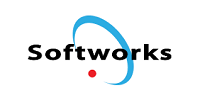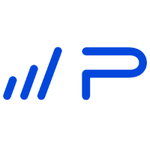Description

Softworks Access Control

Vanderbilt
Comprehensive Overview: Softworks Access Control vs Vanderbilt
Softworks Access Control and Vanderbilt are two distinct entities in the realm of access control solutions. Here's a comprehensive overview of each, addressing your queries:
Softworks Access Control:
a) Primary Functions and Target Markets:
Primary Functions:
- Softworks Access Control primarily focuses on workforce management solutions. Their access control systems are designed to regulate and monitor employee access within organizational facilities, ensuring security and compliance.
- The system integrates with time and attendance solutions, allowing for efficient management of workforce scheduling, absence management, and compliance reporting.
- Provides real-time data and analytics to facilitate decision-making regarding workforce productivity and optimization.
Target Markets:
- Large and medium-sized enterprises across various sectors including healthcare, manufacturing, retail, and public sector organizations.
- Institutions requiring a blend of access control with advanced workforce management capabilities.
b) Market Share and User Base:
- Softworks, known for its workforce management solutions, may not dominate the traditional access control market but holds a significant presence in markets requiring integrated HR and security solutions.
- User base mainly consists of organizations seeking comprehensive workforce management tools with embedded access control functionalities.
c) Key Differentiating Factors:
- The integration of access control with workforce management and time attendance systems distinguishes Softworks in the market.
- Emphasis on enhancing workforce efficiency and productivity alongside providing a secure environment.
- Tailored solutions that cater to specific industry needs and compliance requirements.
Vanderbilt Industries:
a) Primary Functions and Target Markets:
Primary Functions:
- Vanderbilt offers advanced access control systems designed to secure and manage entry to premises efficiently.
- Their product range includes software-driven solutions for security management, integration with video and intrusion systems, and cloud-based platforms for remote management.
- Specializes in card access systems, door readers, and controllers that provide robust security and interoperability.
Target Markets:
- Commercial real estate, education, healthcare, and critical infrastructure sectors.
- Small to large enterprises needing scalable and sophisticated security solutions.
b) Market Share and User Base:
- Vanderbilt is considered a strong contender in the global access control market, with a substantial share attributed to its advanced technology and comprehensive security offerings.
- Widely used by enterprises that prioritize security, innovation, and scalability.
c) Key Differentiating Factors:
- Broad range of highly specialized access control products that offer flexibility and integration with other security systems.
- Focus on innovation with cloud-based and mobile-access technology.
- Known for user-friendly interfaces and robust customer support services.
Comparison Between Softworks and Vanderbilt:
- Integration vs. Specialization: Softworks integrates access control within broader workforce management, while Vanderbilt specializes in advanced security solutions.
- Target Audience: Softworks targets businesses looking for integrated HR and access control, whereas Vanderbilt appeals to those needing advanced and scalable security systems.
- Technological Differentiation: Vanderbilt emphasizes cutting-edge security technology with a strong focus on innovation, especially in cloud solutions. Softworks leans towards holistic workforce optimization.
Both Softworks and Vanderbilt provide compelling solutions in their domains, with unique offerings tailored to specific market needs and customer preferences.
Contact Info

Year founded :
Not Available
Not Available
Not Available
Not Available
Not Available

Year founded :
Not Available
Not Available
Not Available
Canada
Not Available
Feature Similarity Breakdown: Softworks Access Control, Vanderbilt
When comparing access control systems like Softworks Access Control and Vanderbilt, it's essential to break down their features to see what they have in common and what differentiates them. Here's a feature similarity breakdown:
a) Core Features in Common:
-
Access Management: Both systems provide ways to manage user credentials, allowing or restricting access to various physical locations within a building.
-
User Authorization Levels: They often have tiered access levels, enabling differentiated permissions based on roles or security clearance.
-
Real-time Monitoring: These systems typically offer real-time monitoring capabilities, allowing administrators to track who enters or exits specific areas in real time.
-
Reporting and Analytics: They usually provide comprehensive reporting tools for auditing entry logs and access attempts, which are crucial for security and compliance purposes.
-
Integration Capabilities: Both access control systems are designed to integrate with other security systems, such as video surveillance, alarm systems, and identity management systems.
-
Scalability: They possess scalability features that can accommodate businesses of different sizes, from small offices to large enterprises.
-
Mobile and Remote Access: Many modern access control systems, including these, support mobile credentials and remote management through cloud services or dedicated apps.
b) User Interfaces Comparison:
-
Softworks Access Control: Known for its user-friendly interface, Softworks often emphasizes simplicity and ease of use, targeting customers who prefer straightforward navigation and intuitive controls.
-
Vanderbilt: Tends to have a more robust interface that provides deeper customization options, often appealing to more technically savvy users or larger organizations that require complex configurations.
c) Unique Features:
-
Softworks Access Control:
- Workforce Management Integration: Softworks often integrates workforce management solutions, which can help with scheduling and time tracking, blending HR functionalities with access control.
- Focus on User Experience: Softworks places a particular emphasis on a streamlined user experience, which can be a unique selling point for organizations that prioritize ease of operation.
-
Vanderbilt:
- Advanced Security Features: Vanderbilt may offer more advanced security features like biometric integration, facial recognition, or more secure encryption standards.
- Customization and Flexibility: It can provide more customization options that allow for tailored solutions to specific business needs, which can include detailed rule-setting and scenario planning.
While both systems share core access control functionalities, their differences lie in user interface design philosophy and the specific additional features they offer, such as Softworks’ expanded integration with HR functionalities and Vanderbilt’s advanced security options. Organizations should evaluate these aspects based on their specific requirements to determine which system is the best fit.
Features

Not Available

Not Available
Best Fit Use Cases: Softworks Access Control, Vanderbilt
Softworks Access Control and Vanderbilt systems are popular choices in the security and access control industry, each serving different needs based on business requirements, industry specifics, and company size. Here's a detailed breakdown:
a) Best Fit Use Cases for Softworks Access Control
Target Businesses or Projects:
-
Small to Medium Enterprises (SMEs):
- Softworks Access Control is designed to support the needs of SMEs, providing sufficient but not overly complex features that are typically required by such businesses.
-
Healthcare Facilities:
- These systems offer robust features essential for healthcare environments, where managing access is crucial for privacy and compliance reasons.
-
Educational Institutions:
- Schools and universities can take advantage of Softworks’ scheduling capabilities alongside access control to manage staff, student, and visitor access across various facilities.
-
Corporate Offices:
- Ideal for managing employee access in environments where time and attendance tracking integrates well with access control.
-
Time and Attendance Focused Organizations:
- Businesses that require a strong integration between access control and time/attendance for HR and operational purposes will find Softworks particularly beneficial.
b) Preferred Use Cases for Vanderbilt
Target Scenarios:
- Large Enterprises or Multinationals:
- Vanderbilt offers scalable solutions that can handle a vast number of users and more complex access scenarios typical of large corporations.
- High-Security Environments:
- Facilities such as data centers, research labs, and military installations benefit from Vanderbilt’s advanced security features and strong integration capabilities.
- Banking and Financial Institutions:
- The high demand for compliance and sophisticated access control measures in banking and financial sectors makes Vanderbilt a preferred choice.
- Government Buildings:
- With high standards for security and access oversight, Vanderbilt offers solutions that can match stringent government norms.
d) Catering to Different Industry Verticals or Company Sizes
Industry Verticals and Sizes:
-
Softworks Access Control:
- Versatility for Various Sectors: While it focuses on businesses like healthcare and education, Softworks is adaptable to other sectors needing user-friendly, integrated access and workforce management systems.
- Feature Mix: It blends access control with human resource management and employee scheduling, which can be tailored for industry-specific needs, especially those looking for cost-effective but efficient solutions.
- Company Size Suitability: Primarily targets small to medium businesses, offering scalable solutions but with a focus on ease of use and implementation simplicity.
-
Vanderbilt:
- Comprehensive Security Needs: Vanderbilt’s systems are known for their robustness and security, making them suitable where stringent access control is paramount across varied industries like tech, finance, and government.
- Integration and Customization: Offers extensive integration capabilities with other security systems, making it a flexible choice for industries needing complex and customized access solutions.
- Company Size Adaptation: Ideal for larger companies not only capable of investing in sophisticated systems but also in need of managing extensive facilities and large employee bases.
In summary, both products serve distinct market needs with some overlap. Softworks leans more towards businesses that value integrated HR and operational solutions with their access control, while Vanderbilt emphasizes security and scalability for larger enterprises and sectors with rigorous compliance demands.
Pricing

Pricing Not Available

Pricing Not Available
Metrics History
Metrics History
Comparing undefined across companies
Conclusion & Final Verdict: Softworks Access Control vs Vanderbilt
Conclusion and Final Verdict for Softworks Access Control vs. Vanderbilt
When deciding between Softworks Access Control and Vanderbilt for a comprehensive access control solution, it is crucial to weigh various factors including functionality, ease of integration, scalability, security features, cost, and customer support. Both solutions offer distinct advantages that can cater to different organizational needs.
a) Best Overall Value
Considering all factors, Vanderbilt generally offers the best overall value, particularly for organizations that prioritize robust security features and scalable solutions. Vanderbilt's comprehensive range of products and ability to integrate seamlessly with multiple third-party systems provide substantial flexibility and enhance its overall cost-effectiveness over time. Its solid reputation and wide adoption in various industries also speak to its reliability and efficacy.
b) Pros and Cons of Each Product
Softworks Access Control
- Pros:
- User-friendly interface: The platform is known for its intuitive design, making it accessible for users with varying levels of technical expertise.
- Cost-effective for small to medium enterprises: It tends to have lower upfront costs, which can be attractive for smaller businesses.
- Focus on time and attendance integration: Offers strong features for workforce management, particularly in relation to time and attendance tracking.
- Cons:
- Limited scalability: Might not be ideal for larger organizations with complex access control needs.
- Fewer integration options: Compared to Vanderbilt, it offers limited compatibility with third-party security solutions.
- Potential limitations in advanced security features: It may not offer as comprehensive a range of security functionalities as some users might require.
Vanderbilt
- Pros:
- Strong security features: Offers advanced capabilities for encryption and data protection, ensuring high-level security.
- Scalability and flexibility: Suitable for enterprises of all sizes, particularly large organizations requiring enterprise-grade solutions.
- Wide integration capabilities: Easily integrates with various third-party systems, providing a seamless experience in complex environments.
- Cons:
- Higher initial cost: Often requires a more considerable upfront investment, which might not be feasible for all companies.
- Complex configuration: Setup and configuration may require professional support or in-house technical expertise.
- Learning curve: Due to its comprehensive features, it may demand a steeper learning curve for users compared to simpler solutions.
c) Recommendations for Users
-
Assess Organizational Needs: Before making a decision, it's crucial for users to evaluate their organization’s specific access control needs, size, and budget constraints. If the organization is small or prioritizes cost-effectiveness with basic integration needs, Softworks Access Control could be a suitable choice.
-
Prioritize Security and Integration: For larger enterprises or those looking for extensive integration options with sophisticated security features, Vanderbilt stands out as a more robust and scalable solution. Its ability to handle complex access control scenarios makes it ideal for high-security environments.
-
Future-proofing: Consider the long-term needs of your organization. If there's potential for scaling or expanding security infrastructure, Vanderbilt’s extensive capabilities might provide better alignment with future goals.
-
Consult Professional Advice: Engaging with a security consultant or IT expert can provide valuable insights tailored to organizational requirements, ensuring that the chosen solution aligns perfectly with both current and future needs.
In summary, while both Softworks Access Control and Vanderbilt have their unique advantages, the ultimate decision should align with the specific demands and long-term goals of your organization, watching closely how they fit within operational and budgetary frameworks.
Add to compare
Add similar companies




